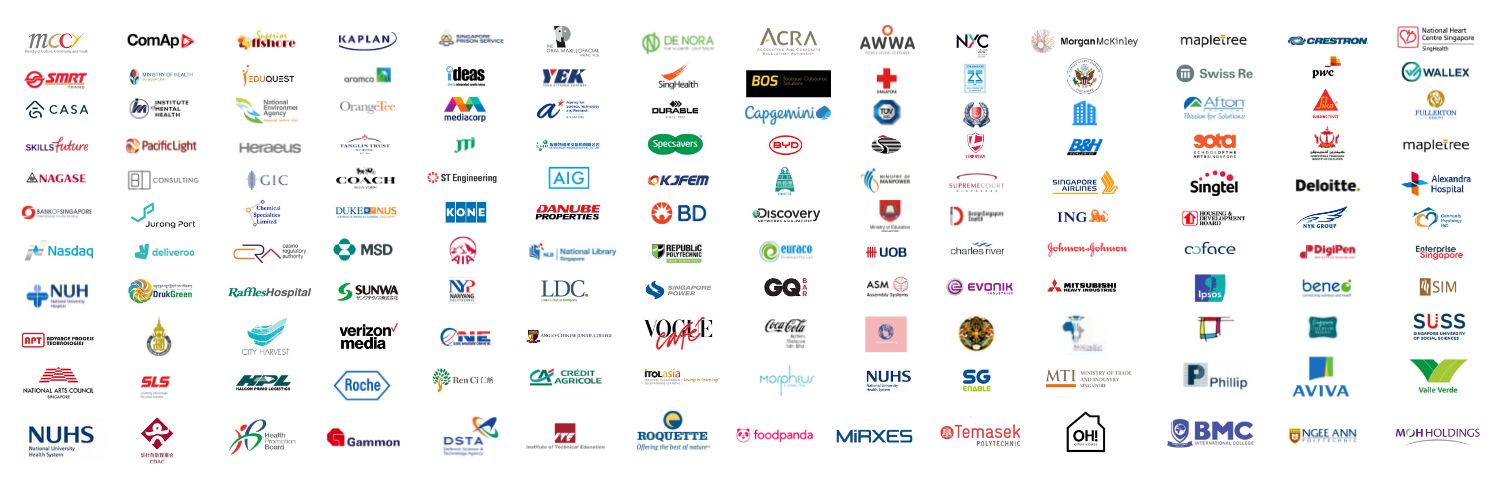Leadership in Crisis Management Training Course in Japan
Our Leadership Courses in Japan is also available in Tokyo, Yokohama, Osaka, Nagoya, Sapporo, Fukuoka, Kawasaki, Kobe, Kyoto, Saitama, Hiroshima, Sendai, Chiba, Kitakyushu, Sakai, Niigata, Hamamatsu, Okayama, Kumamoto, Shizuoka, Kagoshima, Himeji, Utsunomiya, Matsuyama, Nara, Toyama, Kurashiki, Takamatsu, Kanazawa, Oita, Naha (Okinawa), Nagasaki, Kanazawa, Hakodate, Nikko, Nara, Kamakura, Takayama, Nikko.
In the face of uncertainty and adversity, effective crisis management can mean the difference between chaos and stability. Welcome to the “Leadership in Crisis Management Training Course in Japan”, where we delve into the art of navigating turbulent waters with resilience and strategic foresight. Japan, a country known for its resilience in the face of natural disasters and its ability to bounce back stronger, provides the perfect backdrop for this transformative journey into crisis leadership.
As we embark on this journey, we recognise the crucial role of leadership in times of crisis. Whether it’s a natural disaster, a public health emergency, or a geopolitical upheaval, leaders must possess the skills and mindset to guide their teams and communities through tumultuous times. In this course, we will explore the principles of crisis management within the unique context of Japan, drawing upon the country’s rich history of resilience and adaptation.
Throughout the course, participants will engage in immersive learning experiences designed to deepen their understanding of crisis dynamics and hone their leadership capabilities. From interactive case studies to real-world simulations, each session will provide practical insights and tools for effective crisis response and recovery. By learning from experts in the field and collaborating with peers facing similar challenges, participants will emerge better equipped to lead with confidence and clarity in the midst of uncertainty.
Join us as we explore the multifaceted dimensions of crisis management in Japan and equip ourselves with the skills and knowledge needed to navigate turbulent times with resilience and resolve. Together, let’s embark on this journey of learning, growth, and leadership in the “Leadership in Crisis Management Training Course in Japan”.
Who Should Attend this Leadership in Crisis Management Training Course in Japan
Welcome to a transformative journey into the realm of crisis management amidst the resilience and fortitude of Japan. The “Leadership in Crisis Management Training Course in Japan” offers an immersive exploration of leadership principles and strategies tailored to navigate the complexities of crises in one of the world’s most disaster-prone regions. In a country renowned for its ability to overcome adversity and emerge stronger, this course provides a unique opportunity to learn from Japan’s rich history of crisis response and recovery.
This course is designed for a wide range of professionals seeking to enhance their crisis management skills and leadership capabilities. From emergency responders and government officials to corporate executives and NGO leaders, anyone responsible for guiding their organisations through times of crisis will find value in this comprehensive training programme. Additionally, academics, researchers, and students interested in understanding the dynamics of crisis management within the context of Japan’s socio-cultural landscape will benefit from the insights and perspectives shared in this course.
Join us on this enlightening journey as we delve into the art and science of crisis management in Japan. The “Leadership in Crisis Management Training Course in Japan” promises to equip you with the tools, knowledge, and confidence needed to lead effectively in times of uncertainty and upheaval, ensuring resilience and stability for yourself and your organisation.
- Executives
- Team Leaders
- Entrepreneurs
- Educators
- Recent Graduates
Course Duration for Leadership in Crisis Management Training Course in Japan
The “Leadership in Crisis Management Training Course in Japan” offers flexible training options to accommodate various schedules and learning preferences. Participants can choose from immersive experiences spanning three full days, providing in-depth exploration and skill development. For those with limited time, condensed formats such as one-day intensives, half-day seminars, and even compact sessions lasting 90 or 60 minutes are available, ensuring accessibility without compromising on the quality or depth of content. Join us for a transformative learning journey tailored to your needs and schedule, and elevate your leadership in crisis management within the dynamic context of Japan.
- 2 Full Days
- 9 a.m to 5 p.m
Course Benefits of Leadership in Crisis Management Training Course in Japan
Prepare to navigate turbulent times with confidence and resilience through the “Leadership in Crisis Management Training Course in Japan”, designed to equip you with the skills and knowledge needed to lead effectively in times of adversity.
- Gain insights into effective crisis management strategies tailored to the unique challenges of Japan.
- Develop leadership skills to guide teams and communities through tumultuous times.
- Enhance your ability to make informed decisions under pressure.
- Foster a culture of resilience and adaptability within your organisation.
- Learn from real-world case studies and best practices in crisis response.
- Strengthen communication and coordination across stakeholders.
- Build trust and credibility through transparent and effective crisis communication.
- Anticipate and mitigate risks to minimise the impact of crises.
- Develop strategies for post-crisis recovery and rebuilding.
- Empower yourself and your team to thrive in the face of adversity.
Course Objectives for Leadership in Crisis Management Training Course in Japan
The “Leadership in Crisis Management Training Course in Japan” aims to equip participants with the necessary skills and knowledge to lead effectively during times of crisis, fostering personal and professional growth in navigating challenges with resilience.
- Develop a deep understanding of crisis dynamics and their impact on individuals and organisations.
- Enhance crisis leadership competencies, including decision-making under uncertainty and managing emotions.
- Foster a culture of preparedness and proactive risk management within organisations.
- Implement effective crisis communication strategies to maintain trust and transparency.
- Cultivate resilience and adaptability to navigate crises with confidence and agility.
- Learn from real-world case studies and simulations to apply crisis management principles in practice.
- Build strong cross-functional teams capable of collaborating seamlessly during crises.
- Develop crisis recovery plans to facilitate swift and effective post-crisis recovery.
- Enhance stakeholder engagement and coordination for comprehensive crisis response.
- Strengthen organisational capabilities for crisis detection, response, and evaluation.
- Implement lessons learned from past crises to improve future crisis management strategies.
- Empower individuals and organisations to emerge stronger and more resilient from crises.
Course Content for Leadership in Crisis Management Training Course in Japan
Embark on a comprehensive exploration of crisis management strategies tailored to the unique challenges of Japan with the “Leadership in Crisis Management Training Course in Japan”. Delve into topics ranging from crisis dynamics and leadership competencies to effective communication strategies and post-crisis recovery planning, all designed to equip you with the skills needed to navigate crises with confidence and resilience.
- Understanding Crisis Dynamics:
- Exploring the stages of a crisis and their impact on individuals and organisations.
- Analysing common triggers and patterns of crises in various industries.
- Understanding the psychological and emotional aspects of crisis response.
- Enhancing Leadership Competencies:
- Developing decision-making frameworks for uncertain and high-pressure situations.
- Managing emotions and stress to maintain focus and clarity during crises.
- Building trust and credibility as a crisis leader through effective communication.
- Fostering a Culture of Preparedness:
- Identifying potential crisis scenarios and developing proactive risk mitigation strategies.
- Establishing clear roles, responsibilities, and protocols for crisis response within organisations.
- Conducting regular crisis preparedness drills and simulations to test response capabilities.
- Implementing Crisis Communication Strategies:
- Crafting clear and timely messages to stakeholders to maintain trust and transparency.
- Utilising various communication channels and platforms to reach different audiences effectively.
- Managing misinformation and rumours through proactive communication and media relations.
- Cultivating Resilience and Adaptability:
- Developing coping mechanisms and resilience-building strategies for individuals and teams.
- Adapting crisis response plans in real-time based on evolving circumstances.
- Fostering a culture of agility and innovation to navigate crises with confidence.
- Learning from Real-World Case Studies:
- Analysing past crises and identifying key lessons learned for future crisis management.
- Studying successful crisis response strategies and best practices from around the world.
- Participating in simulated crisis scenarios to apply theoretical knowledge in practice.
- Building Cross-Functional Teams:
- Facilitating collaboration and communication across different departments and functions.
- Establishing cross-functional crisis management teams with clearly defined roles and responsibilities.
- Developing trust and cohesion within teams to ensure effective coordination during crises.
- Developing Crisis Recovery Plans:
- Assessing the impact of crises on operations, finances, and reputation.
- Identifying short-term and long-term recovery goals and objectives.
- Creating detailed recovery plans with actionable steps and timelines.
- Enhancing Stakeholder Engagement:
- Engaging with stakeholders proactively to understand their concerns and expectations.
- Building collaborative partnerships with external organisations and agencies for comprehensive crisis response.
- Establishing communication channels for ongoing dialogue and feedback with stakeholders.
- Strengthening Organisational Capabilities:
- Investing in technology and resources to enhance crisis detection and monitoring.
- Building a resilient infrastructure and supply chain to withstand disruptions.
- Establishing mechanisms for continuous improvement and evaluation of crisis response processes.
- Implementing Lessons Learned:
- Conducting post-crisis debriefings to analyse strengths, weaknesses, and areas for improvement.
- Updating crisis management plans and protocols based on lessons learned from past crises.
- Embedding a culture of learning and adaptation to drive continuous improvement in crisis management practices.
- Empowering Individuals and Organisations:
- Providing training and resources to empower individuals to take decisive action during crises.
- Fostering a supportive organisational culture that prioritises employee well-being and resilience.
- Building organisational capacity to bounce back stronger and more resilient from crises.
Upcoming Course and Course Brochure Download for Leadership in Crisis Management Training Course in Japan
Stay informed and connected with the latest updates and resources for the “Leadership in Crisis Management Training Course in Japan”. Be the first to receive information about upcoming sessions, exclusive workshops, and downloadable brochures designed to enhance your crisis management skills and resilience. Join our mailing list today to ensure you stay ahead in navigating turbulent times with confidence and strategic foresight.


